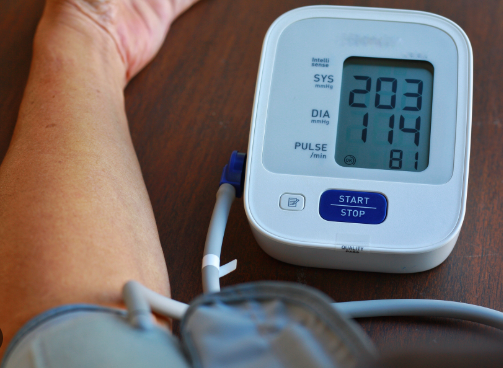
If you’re over 55 and not getting enough vitamin D, you might be facing hidden issues with your bones, immune health, and mood, without even realizing it.
Here’s something many people overlook:
A common mistake among older adults is believing that a basic supplement or brief time in the sun is enough to meet their vitamin D needs.
Vitamin D: More Critical Than Ever as You Age
Vitamin D isn’t just essential for strong bones. It’s vital for:
- Protecting against fractures
- Boosting immune function
- Calming inflammation
- Balancing mood and energy
- Supporting muscle strength and nerve health
However, today’s modern lifestyle has made it harder than ever to get enough naturally.
Why You Might Still Be Deficient
Even if you spend time outdoors daily, you might still fall short—and here’s why:
- Glass windows block the UVB rays necessary for vitamin D production
- If your shadow is taller than you are, your skin isn’t making enough vitamin D
- Sunscreens, pollution, aging skin, and gut health problems interfere with vitamin D synthesis
- Darker skin tones, obesity, and chronic gut inflammation can all limit absorption and effectiveness

How to Correct Healthy Levels Naturally and Safely
Experts increasingly recommend supplementing with vitamin D3 (not D2). Here’s what you should know:
For older adults with limited sun exposure, a daily dose of up to 10,000 IU is often considered both safe and effective.
But there’s an important detail:
Vitamin D doesn’t work alone. To be properly absorbed and used, it needs:
- Magnesium to activate it
- Vitamin K2 directs calcium safely into bones rather than arteries
- Zinc to strengthen immune and hormonal systems
Without these key nutrients, even large doses of vitamin D could be less effective, or even cause unwanted imbalances.
Could You Be Vitamin D Resistant?
Some people experience vitamin D resistance, where blood tests look normal but their body can’t utilize the vitamin properly.
Possible causes include:
- Toxin buildup
- Gut absorption problems
- Chronic inflammation
- Genetic factors

The Best Supplement Strategy If You’re 55+
Here’s a balanced protocol to consider:
Vitamin D3: 5,000–10,000 IU/day (adjust based on test results)
Vitamin K2 (MK-7): 100–200 mcg/day
Magnesium (glycinate or citrate): 300–400 mg/day
Zinc: 15–30 mg/day
11 Signs Your Body Is In Desperate Need Of Vitamin D

There are a variety of possible signs of a deficiency in vitamin D, a fat-soluble nutrient that, along with other vitamins and minerals, helps to regulate the functioning of the body’s main systems.
It is obtained naturally by exposing the skin to sunlight, though it can also be found in foods and supplements.
It is very crucial because it is essential for the absorption of calcium and phosphorus, two minerals that keep bones and teeth strong.
Among other things, it is necessary for the muscles, heart, brain, and other organs whose proper functioning ensures a good quality of life.
The problem is that not everyone is able to get it in adequate levels, which is why symptoms and health problems arise, which tend to worsen when the deficiency is not treated in a timely manner.
That is why you should know how to identify and, of course, take the necessary measures to improve its absorption every day. See below some possible symptoms of vitamin D deficiency:
Muscle and bone weakness
Muscles and bones are more easily affected when vitamin D levels are significantly low. This is because there are also imbalances in magnesium levels, another essential mineral for keeping them strong and healthy.
Depression
Low levels of this essential nutrient are associated with a tendency to suffer from irritability, depression and sudden mood swings. Vitamin D is involved in the secretion of feel-good hormones and, therefore, its deficiency affects mental health.

Inflammation and pain
Similar to many other essential nutrients, vitamin D is involved in controlling inflammatory processes in the body, preventing problems such as sensitivity to pain or joint problems.
Low levels increase the risk of suffering from these types of disorders, making it difficult to combat chronic pain.
Dental problems
As we have already indicated, a lack of vitamin D makes it difficult for the teeth to absorb and use calcium properly, increasing the risk of infections and tooth loss.
This, in addition to the inflammatory problems involved, generates symptoms such as redness, inflammation and bleeding of the gums.
High blood pressure
One of the aspects that must be taken into account when blood pressure increases is the possible nutritional deficiencies that are linked to it.
Though this cardiovascular disorder is caused by multiple factors, a lack of vitamin D can cause complications.

Feeling of fatigue
The poor absorption of vitamin D in the body influences physical and mental performance, generating a strong feeling of fatigue in affected patients.
The person often becomes drowsy and can hardly carry out the daily tasks that they are used to performing.
Increased body weight
Since vitamin D is one of the fat-soluble nutrients, overweight and obese people need to absorb it in greater quantities.
Its low levels complicate metabolic activity and, therefore, make it difficult to regain a healthy weight.
Asthma
A deficiency in this nutrient is related to difficulties in treating asthma, since it is linked to lower lung functions.
Its correct assimilation facilitates the control of this respiratory problem, as it blocks the proteins that generate inflammation in the lung tissues.

High cholesterol
Among the functions of this vitamin in the body is its relationship with the cleansing of bad cholesterol (LDL) that accumulates in the blood.
A person who cannot maintain an adequate amount has a greater risk of the effects of hypercholesterolemia.
Flu and colds
Having low levels of vitamin D has effects on the production of antibodies by the immune system and, therefore, it is more likely to suffer from recurrent flu and colds.
The aggravating factor in these cases is that, due to insufficiency, the respiratory tract and tissues tend to become more irritated.
Intestinal problems
Fat absorption problems are linked to vitamin D deficiency and, in turn, influence the development of intestinal problems.
It is essential to improve its absorption in cases of: Gluten sensitivity (celiac and non-celiac), Crohn’s disease, Inflammatory bowel disease.
Excessive sweating
With the low absorption of this nutrient, hormonal changes occur that can generate symptoms such as excessive sweating. It is common for the patient to feel excessive sweating, especially on the head.
If you suspect this nutritional deficiency, try to increase the consumption of foods that contain it and, if possible, absorb it through short sunbathing sessions.
Keep in mind that caution is very important in this case, as the sun’s rays have counterproductive effects when there is prolonged exposure and without protection.




















